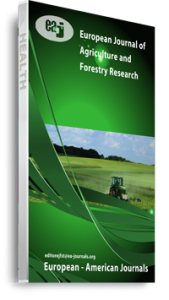Agriculture comprises of a number of farming activities, where both men and women are involved in multiple diverse nature of field operations. In spite of their high contribution in farm and non-farm activities, there exist gender disparities with reference to agricultural extension, advisory services. The present study was designed to identify the barriers limiting the active participation of both genders (men and women) in agricultural operations and address gender disparities in agricultural extension. The study was conducted in five districts in East Shewa and Finfinnee surrounding special zone, Oromia regional state, Ethiopia. Personal interviews were conducted from male and female development agents, resulting a total sample size of 60 (49 male and 11 female). A structured questionnaire was prepared as the research instrument for data collection.. The collected data were coded on SPSS for analysis and interpretation. Results showed that around 87% of male farmers participated at a high rate, whereas the majority (78.3%) of female farmers participated at a medium rate. Female heads of households were more involved in agriculture and livestock production compared to their wives. Notably, women displayed greater engagement in animal production practices compared to crop production. In spite of their participation in crops and livestock activities, male heads of households had superior access to agricultural extension, advisory services, information, and credit facilities compared to female farmers. This is due lack of proper transport facilities for female extension personnel, non-availability of female extension personnel, lack of recognition and appreciation of rural female’s work, lack of provision of agricultural credit facilities for women and lack of decision making authority among female workers. The results of the t-test statistics showed that there is highly significant difference in opinion of male and female respondents regarding barriers to gender equality in agricultural extension in Ethiopia. In the light of findings of present research, authors suggest policy guidelines related to enhancement educational as well as skill level of rural women as well as development agents in the community through education and training to narrow the gender gap/inequality in agricultural extension.
Keywords: Development agent, Extension Service, Gender Equality, Obstacles

